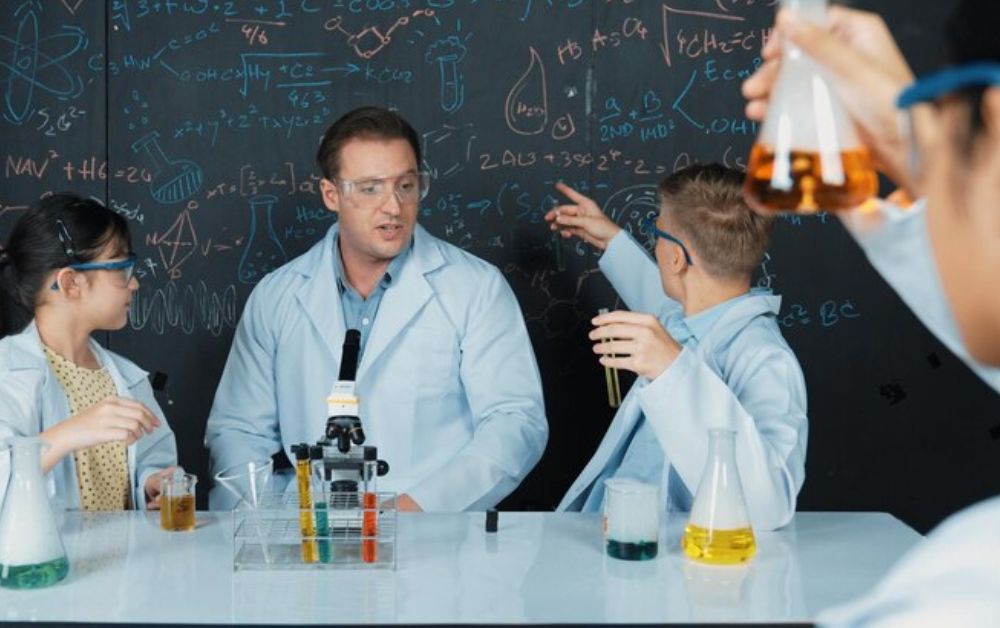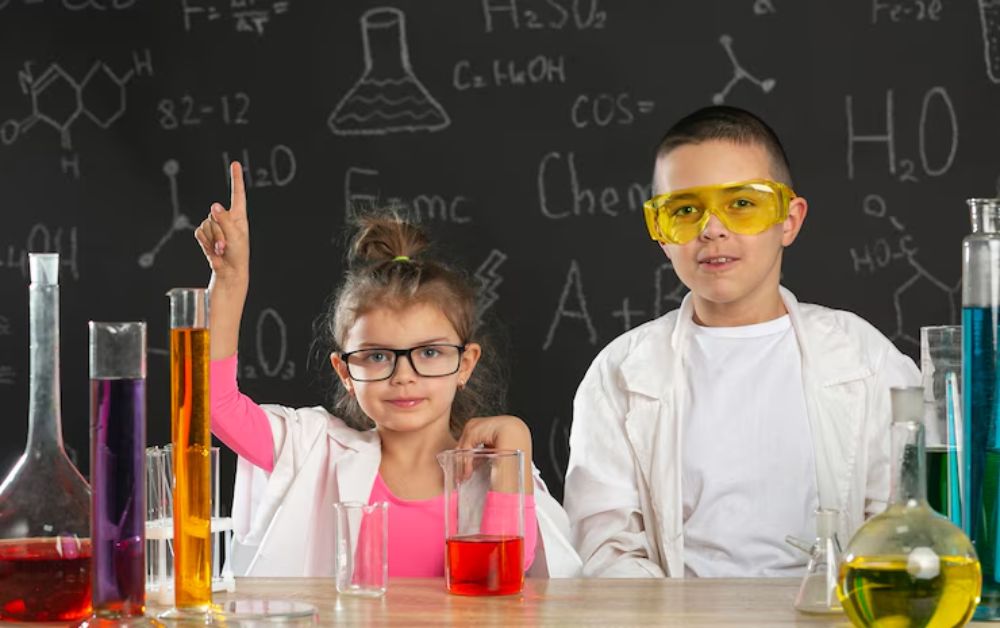
Chemistry Concepts Every Student Must Know Before College
Chemistry is a foundational science that connects deeply with biology, physics, and environmental science. A firm grasp of core chemistry concepts boosts confidence as students prepare to enter college. It lays the groundwork for more advanced health sciences, engineering, material science, and environmental studies. This blog outlines the essential chemistry concepts every student must know before college, ensuring a smoother transition to university-level coursework.
Introduction
The transition from high school to college chemistry can be dramatic. In college, students must apply principles, work on intricate problems, and reason critically regarding molecular behavior. A solid grasp of fundamental chemistry concepts is imperative if you are seeking a STEM degree or merely fulfilling general education requirements. Before entering your first college chemistry course, these are the essential concepts that you need to master.

1.Atomic Structure and the Periodic Table
A familiarity with atomic structure is fundamental to all of chemistry. Students need to be well-acquainted with atoms being made up of protons, neutrons, and electrons. Understanding how these particles dictate the identity of an element, isotopes, and ions is key.
The periodic table is more than a list of elements—it’s an excellent tool. The position of each component tells us something about its atomic number, electron configuration, and chemical properties. Students should know groups (columns), periods (rows), and trends such as electronegativity, atomic radius, and ionization energy.
2.Chemical Bonding
College chemistry relies very much on your knowledge of chemical bonds. Students should know how to differentiate between:
- Ionic bonds (between metals and nonmetals),
- Covalent bonds (nonmetals that share electrons),
- Metallic bonds (delocalized electrons in metal).
Secondly, polarity—how electronegativity differences impact molecular interactions—is essential to learning about solubility and reactions. Students must also know about Lewis structures, VSEPR theory, and molecular geometry.
3.States of Matter and Intermolecular Forces
Before college, one should know the general properties of solids, liquids, and gases. But more than that, students should understand intermolecular forces—hydrogen bonding, dipole-dipole interactions, and London dispersion forces—because these influence boiling points, melting points, and solubility.
Understanding the gas laws (Boyle’s, Charles’s, Avogadro’s, and the ideal gas law) and their relationship with pressure, temperature, and volume is also basic to college-level work.
4.Chemical Reactions and Equations
The ability to read and write balanced chemical equations is essential. Students must be aware of the chemical reaction types:
- Synthesis
- Decomposition
- Single replacement
- Double replacement
- Combustion
Balancing equations through the conservation of mass and charge is an essential skill. In addition, students must understand the subject stoichiometry, which encompasses mole conversions, identification of limiting reagents, and calculation of yields.
5.The Mole Concept and Molar Calculations
The mole is a basic unit of chemistry. Students should feel at ease with conversions among grams, moles, and particles in numbers with Avogadro’s number (6.022 × 10²³). Familiarity with molar mass, molar volume of gases, and percent composition is crucial for success in college chemistry.
6.Solutions and Concentrations
They should understand how solutions are created and how to represent concentration as molarity (mol/L). Dilution, solubility, saturated and unsaturated solutions, and solubility factors should be clearly understood. These concepts are essential to lab experiments and practical applications in pharmaceuticals and environmental studies.
7.Acids, Bases, and pH
Understanding the nature of acids and bases, the pH scale, and the calculation of pH from H⁺ or OH⁻ concentrations is crucial. Students should realize neutralization reactions, strong and weak acids/bases, and the Bronsted-Lowry and Arrhenius definitions. Buffer solutions and how they keep pH in balance are also significant concepts.
8.Thermochemistry and Energy Changes
College chemistry tends to explore the energy changes that occur with chemical reactions. By the time students enter college, they should be familiar with:
- The distinction between endothermic and exothermic reactions.
- Interpreting and applying changes in enthalpy (ΔH).
- The fundamentals of calorimetry and specific heat capacity.
These topics help us understand how reactions take in or give out energy—something as crucial as metabolism or the design of engines.
9.Kinetics and Equilibrium (Basic Overview)
While these subjects are typically explored in greater detail at the college level, students should at least have an introductory understanding of:
- Reaction rates and what influences them (temperature, concentration, catalysts).
- The principle of chemical equilibrium—a dynamic equilibrium in reversible reactions.
- Le Chatelier’s Principle predicts how a system at equilibrium will react to changes in conditions.
10.Laboratory Safety and Techniques
Finally, lab hands-on experience demands proficiency with lab safety rules, standard equipment (such as beakers, burettes, and pipettes), and standard techniques like titration, filtration, and weighing chemicals. Even having theoretical knowledge of these techniques can make a college-bound student feel better equipped for a college laboratory experience.
Conclusion
Learning these chemistry principles before college gives students a solid academic foundation and minimizes the learning curve early in college science classes. In addition to memorizing facts, students should also seek to learn the why of chemical phenomena. The better prepared you are before entering a college chemistry course, the more successful and confident you will be. A strong foundation in these core areas will serve you well academically and generate curiosity and appreciation for the world of molecules that surround us.

